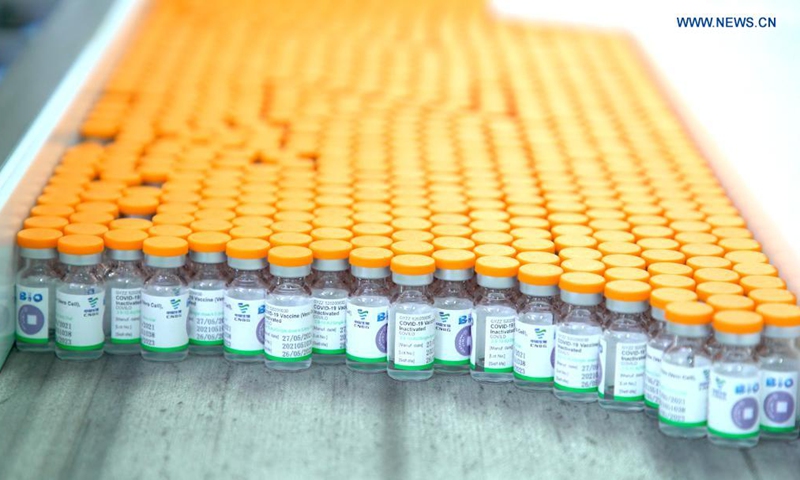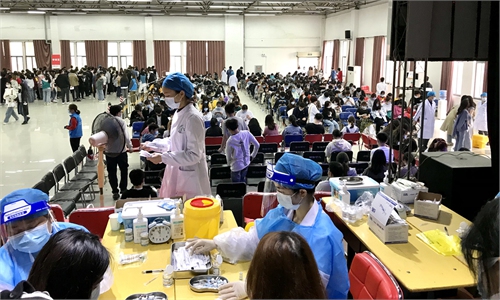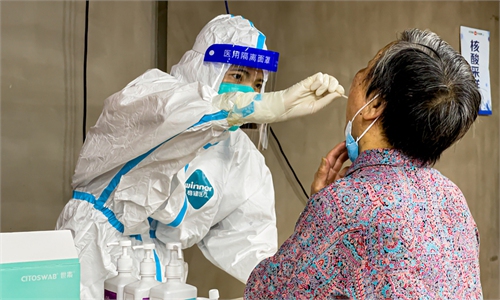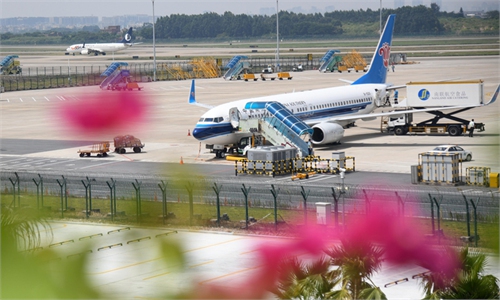Taking only one dose of vaccine proven to be effective against severe symptoms in fresh COVID-19 surge in Guangzhou

Photo taken on June 1, 2021 shows vials of the Sinopharm vaccine in Beijing, capital of China. China on Tuesday said the first batch of Chinese vaccines supplied to COVAX officially rolled off the production line, which is another important reflection of China's commitment to making its COVID-19 vaccines global public goods with concrete actions.Photo: Xinhua
Taking even one dose of a two-dose vaccine has proven to be effective in the fresh COVID-19 surge in Guangzhou, capital of South China's Guangdong Province, particularly against severe symptoms, despite the strong infectivity and short incubation period of the mutated strains first detected in India, data shows.
Lei Chunliang, head of the Guangzhou Eighth People's Hospital under Guangzhou Medical University, a designated COVID-19 hospital in the city, made the remarks in a media interview on Wednesday.
Of the more than 50 domestic patients including asymptomatic cases the hospital has received as of Tuesday evening, four had been administered with one dose of a COVID-19 vaccine, with the second shot pending before they became infected, Lei told local newspaper the Guangzhou Daily.
"Our finding is that, as long as a patient is vaccinated, even if the two-dose process is not finished, the condition is not severe. Clinical feedback shows that vaccines are very effective in preventing severe cases," Lei was quoted in the report as saying.
The virus causing the fresh surge is a mutated strain first detected in India, media reported.
The patients from this round of infections generally carried a large amount of virus, leading to a strong infectivity and short incubation period, and a long treatment period before nucleic acid turns negative, Lei said.
As of Wednesday, only one domestic patient's nucleic acid had turned negative at the hospital, Lei said, noting that three were still in severe condition.
Global Times



